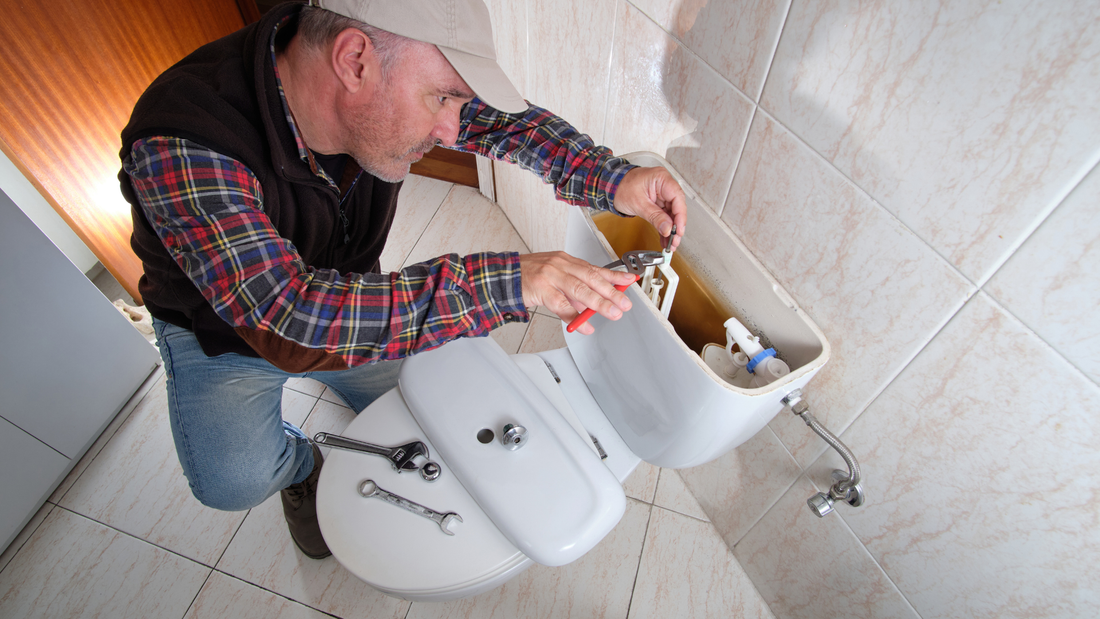
When a DIY or Handyman Is Enough for a Plumbing Job
In a forum post, a homeowner shared this scenario: a plumber quoted $1,200 to replace a toilet, while the homeowner paid $250 and did it himself in 45 minutes. The homeowner also reported being quoted $600 to snake a drain but hired someone else for $170. These numbers sparked frustration and raised questions: Are the rates legitimate? Should one simply hire a handyman instead of a plumber? And beyond pricing, what do trades professionals need to protect themselves from liability?
Let’s get into these questions from both sides: the homeowner’s perspective and the plumber’s business and insurance risk, especially why “plumbers' insurance” is a must.
Our goal is to help homeowners understand when a licensed plumber makes sense, and help plumbing professionals understand what kinds of coverage are essential for their business.
When a handyman might suffice
There’s no hard rule that every plumbing job must go to a licensed plumber. Some situations truly are within the range of a qualified handyman: replacing a toilet (you already bought it), unclogging a basic drain, installing a faucet, etc. For many homeowners, that can save money and avoid unnecessary upsell.
The homeowner’s logic is straightforward: “The job cost me $250 and took 45 minutes, why was I quoted three to five times more?” The frustration is valid. Some factors that drive cost:
- The plumber might include travel time, overhead, licensing costs, insurance, disposal of materials, and profit margin.
- The plumber might cover emergency service, after-hours availability, or additional inspection and testing.
- The contractor might build in extra margin to reflect risk or to manage their workflow.
From a homeowner’s standpoint, when the job is simple and you’re comfortable doing it, going the DIY route or hiring a handyman is a legitimate option.
Why the higher pricing from a plumber can make sense
On the flip side, plumbing professionals have business realities that justify higher pricing:
- They carry expenses: licensing, continuing education, tools, vehicles, insurance, employee wages or subcontractor costs. One homeowner commenter pointed out:
- “Running a plumbing business isn’t free … Insurance isn’t free. Hiring isn’t free. Lead-gen isn’t free.”
- They assume risk: Mistakes in plumbing can cause significant property damage (water flood, mold, structural damage) or injury (scalding hot water, tripping hazards).
- They handle liability: A licensed plumber might include permit costs, code‐compliance, warranty on workmanship, and availability for follow‐up service, things a handyman may not commit to.
While the quoted rate might feel inflated, there’s reasoning behind it. If something goes wrong, the homeowner may pay much more than the initial quote. For many contractors, the higher price reflects both risk and the value they bring.
Handyman vs. Licensed Plumber: What to decide
Here’s a quick checklist to help you decide:
Use a handyman if:
- The job is simple and purely cosmetic or replacement (e.g., swapping an existing toilet for the same model).
- No permit or major system modification is required.
- You’re comfortable with tools and assume some risk.
Use a licensed plumber if:
- You’re modifying plumbing systems, piping, or dealing with complex installations (water heaters, sump pumps, sewer lines, gas lines).
- Permits or inspections are required.
- You want warranty, code compliance, and peace of mind.
Recognizing that distinction can help you negotiate, ask for quotes, and decide when it’s worth the premium.
Protecting Your Work and Reputation, especially if you’re the pro
If you're a plumbing business, having the right insurance isn’t optional, it’s foundational. Here’s why it matters and what “insurance for plumbers” typically covers.
Core coverages you need
According to industry resources:
- General liability insurance is the baseline. It protects against third‐party bodily injury or property damage your business operations may cause.
- Commercial auto insurance if you use vans, trucks, or trailers to transport tools or staff.
- Tools and equipment insurance (often an inland marine clause) to cover theft or damage of your gear.
- Workers’ compensation for your employees, covering medical bills and lost wages if someone is injured on the job.
- Professional liability / errors & omissions for claims related to faulty work, design errors, or omissions.
- Surety bonds in jurisdictions where they’re required, important if you hold a license and your client demands proof of bonding.
What it really protects you from
Say you replace a toilet and the connection leaks overnight, flooding the client’s home and damaging hardwood floors. Or you snake a drain but damage the pipe, causing further deterioration. These incidents could result in lawsuits, repair costs, or reputation damage. General liability insurance for plumbers or more specific plumbing insurance, addresses those risks.
Having proper insurance allows you to operate confidently, bid more competitively on jobs, and avoid the fate of underinsured craftspeople who get crushed by a single claim.
How much does plumbers insurance cost?
Premiums vary widely depending on size of business, state, risk profile, etc. For example:
- Average general liability policy for plumbing contractors is around $115 per month (~$1,378/year) for $1 M/$2 M limits.
- Some resources indicate premiums in the $400 to $1,200 annually range for basic plumbing liability.
So budget accordingly, and while the upfront premium may seem heavy, it’s minimal compared to the potential cost of one major claim.
The pricing debate: What those homeowner quotes reveal
Going back to the stories of $1,200 for a toilet or $600 to snake a drain, what lessons can we draw?
- Some contractors quote high (“FU price”) because they don’t want small jobs, they want large ones. That strategy might protect margins but risks reputation.
- Homeowners perceive unfairness when labor + materials don’t seem to add up to the quoted price.
- The plumbing business that invests in licensing, training, insurance, and quality may legitimately charge more, and many homeowners are willing to pay for value rather than cheap shortcuts (per a positive comment: “I’ll gladly pay a bit more knowing it will be done right the first time”).
- Uninsured or under-insured tradespeople may offer lower quotes but carry hidden risk, for both the homeowner (accepting liability) and the plumber (lack of protection if something goes wrong).
From a homeowner’s perspective, it’s wise to ask contractors: “Are you licensed? What limits does your insurance carry? Will you be on the job or is a subcontractor? What warranty do you offer?” These questions help filter based on value, not just lowest price.
From a plumber’s perspective, underwriting your business properly with insurance and demonstrating that to clients differentiates you. You’re not just a low-cost service, you’re a risk-aware professional partner.
Tips for homeowners and plumbers
For homeowners:
- Get multiple quotes, and ask for itemized breakdowns (labor, parts, travel, overhead).
- Check for license and insurance. Don’t assume “handyman” is fine for system changes.
- Clarify warranty and follow‐up service: defective work often surfaces later.
- Consider value, not just price. A slightly higher rate may mean fewer callbacks and worry.
For plumbing professionals:
- Guarantee that you have the appropriate “plumbers insurance,” including general liability and tools coverage.
- Make your insurance and license visible to clients. It builds trust and lets you command better pricing.
- Ask yourself: am I willing to do all jobs or just those that meet my margin and risk criteria? If you skip small jobs, be clear about that policy instead of inflating price arbitrarily.
- Send clients a simple needs check (e.g., “I focus on full-service plumbing, permits and inspections included” vs “handyman jobs done by subcontractor”).
- Track claims, implement best practices, and use risk management to keep premiums manageable and clients confident.
The Practical View
If you’re a homeowner wondering if you need a licensed plumber, or if a handyman will suffice. The answer depends on the complexity and scope of the job. For simple replacements, a skilled handyman may be fine. But when plumbing touches major systems, code compliance, or risk of damage, the plumber’s added cost can buy peace of mind.
And for plumbing professionals, charging a premium is less justified if you’re not backing your work with licensing, insurance, transparency, and follow-up service. Having “plumbers insurance” isn’t just a line item, it’s a signal of professionalism, a protection for you, and sometimes the difference between a thriving business and one that folds after a claim.
In the end, the cost you pay, or charge, reflects scope, risk, and value. Understanding that dynamic helps homeowners make informed decisions and helps plumbing professionals position themselves smartly.
